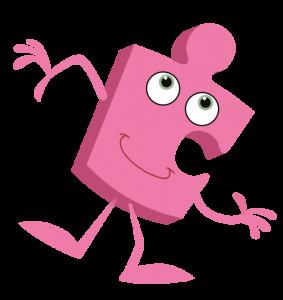Relationships and Sex Education at YARROW HEIGHTS





This booklet provides information about the specific topics that your child will examine as part of their Relationships and Sex Education (RSE) lessons. RSE falls under the auspices of our wider Personal, Social, and Health Education (PSHE) programme; RSE lessons start after the May half term for all pupils.
RSE lessons are designed to equip young people with the information they need to understand and safely navigate issues like relationships, friendships, sex and consent, and puberty. RSE lessons also help to dispel any misconceptions that children may have about these issues, such as those found in the online arena.

At Yarrow Heights, our RSE curriculum is based on the Jigsaw PSHE programme. This is an award-winning PSHE syllabus that has been created by industry experts who specialise in delivering this vital subject to pupils of all ages. We have adapted the content of the Jigsaw curriculum to suit the needs and learning preferences of the children at Yarrow Heights.
The Department for Education stipulates that parents can request that their child is withdrawn from the sex education aspect of RSE lessons. This right can be exercised up to and until three terms before your child turns 16. At this point, the decision to receive sex education rests solely with your child. It is my hope that this booklet will help you to make an informed decision about whether you want your child to receive sex education. Although the Department for Education encourages all parents to ensure their child receives sex education lessons at school, we are also sympathetic to parental concerns such as the content being too challenging or inappropriate. I hope you find this booklet useful in making a decision about your child’s RSE provision at Yarrow Heights.
Please do not hesitate to contact the school at any time if you have any questions or concerns.
Liam Gaster Deputy Headteacher (Quality of Education)RSE lessons (including sex education) are delivered by our two PSHE tutors, Grace and Ana




RSE lessons (including sex education) take place in the pupils’ PSHE lessons. All pupils have one PSHE lesson per week. These lessons are supplemented by assemblies and weekly tutor time discussions. RSE and sex education lessons all take place in the second half of the summer term.
Our PSHE curriculum (including RSE and sex education) is based on the Jigsaw® PSHE syllabus.
The content of the Jigsaw syllabus has been compiled by teachers and other experts in the field of PSHE and pastoral education. For our pupils, we have adapted the Jigsaw syllabus to suit their specific needs and learning preferences.

1 How babies grow I understand that in animals and humans lots of changes happen from birth to fully grown, and that usually it is the female who has the baby
2 Babies I understand how babies grow and develop in the mother’s uterus.
I know what babies need as they grow.
I can express how I feel when I see babies or baby animals
I can express how I might feel if I had a new baby in my family
3
Outside Body Changes I understand some of the ways boys’ and girls’ bodies change on the outside as they grow up.
4 Inside body changes I understand some of the ways boys’ and girls’ bodies change on the inside so they can make babies when they grow up.

5 Family Stereotypes I can start to recognise stereotypical ideas I might have about parenting and family roles.
6 Looking Ahead I can identify what I am looking forward to when I move to my next class
I can identify some of the ways in which people’s feelings change over time
I can identify some of the ways in which people’s feelings change over time
I can express how I feel when my ideas are challenged and might be willing to change my ideas sometimes
I can start to think about changes I will make next year and know how to go about this
1 Self and Body Image I am aware of my own self-image and how my body image fits into that
2 Puberty for Girls I can explain how a girl’s body changes during puberty (e.g., menstruation, periods, menstrual towels/tampons, changes to sexual organs)
3 Puberty for Boys I can explain how boys’ bodies change during puberty (e.g., sperm production, changes to sexual organs, body hair, erections, ejaculation and wet dreams)
4 Conception I understand that sexual intercourse can lead to conception and that is how babies are usually made
5 Looking ahead 1 I can identify what I am looking forward to about becoming a teenager and understand this brings growing responsibilities (Year 6 only: age of consent)
6 Looking ahead 2 I can identify what I am looking forward to when I move to my next class.
I know how to develop my own self esteem
I understand that puberty is a natural process that happens to everybody and that it will be ok for me
I understand that puberty is a natural process that happens to everybody and that it will be ok for me
I appreciate how amazing it is that human bodies can reproduce in these ways
I am confident that I can cope with the changes that growing up will bring
I can start to think about changes I will make next year and know how to go about this
1 My Changing Body I can understand the changes that happen during puberty
I can express how I feel about the changes that happen during puberty, and that people develop at different rates, and what to do if I am concerned
2 Having a baby I know how a baby is conceived naturally; I know that there are other ways a baby can be conceived e.g., IVF.
3 Types of relationship and their impact
I know there are different types of committed stable relationships and that some people may choose to have children or not
4 Image and selfesteem I know that the media can have a positive or negative impact on a person’s selfesteem or body image
5 My changing feelings I know some of the changes in my brain during puberty.
I understand some of the emotional changes during puberty.
6 Assessment I can summarise the potential impact of changes in puberty
I can express the different feelings and choices that people may have and make about conception, pregnancy and having a baby
I can understand that stable intimate relationships can be linked to happiness
I understand how self-image is linked to self- esteem.
I can apply strategies to build my selfesteem.
I know some ways to support myself and others during times of change
I can stay positive and boost my own self- esteem
1 Different types of relationship
I know different types of close, intimate relationships that people can have. I know what happens physically when individuals experience physical attraction.

2 What’s in a relationship? I understand the positive aspects of having a girlfriend or boyfriend
3 Looks and smiles I understand the range of feelings associated with attraction
4 Does pornography help people understand relationships?
I know that pornographic images do not reflect reality. I know how pornography can impact on expectations and self-image.
5 Alcohol and risk I can list some risks associated with drinking too much alcohol, including unprotected sex, non-consensual sex
6 Assessment I can summarise behaviours and attitudes that could make a relationship healthy or unhealthy
I know that intimate relationships do not have to involve sex.
I know some of the positive behaviours people exhibit in healthy intimate relationships
I can identify what you would seek in a boyfriend/girlfriend relationship
I recognise that attraction towards others takes many forms and can change over time
I recognise the role of pornography in society.
I understand the negative influence pornography can have on relationships.
I can describe the behaviour changes that can occur when people drink alcohol
I can express my own opinions on relationship issues
1 Mental health
I know that my mental health can be affected by different situations and experiences (especially during puberty)
2 Change and emotions I know that change during puberty can trigger a range of emotional responses. I know that some changes can be more difficult to manage than others.

3 Better sleep I know that sleep is especially important during puberty (e.g., due to the immense physical and psychological changes).
4 Resilience I understand what resilience means. I understand how resilience can be developed.
5 Resilience I can reflect on the changes that my body and brain have undergone since starting puberty.
6 Assessment I can summarise how different types of change can affect mental health and know some strategies to stay resilient
I appreciate that the people in my life may have a range of different views and opinions
I can suggest ways I can manage change in my life
I acknowledge that I am in control of changes in my life and appreciate that the decision to implement change can be challenging
I can reflect on skills that I could improve to enhance my resilience
I understand that some change is inevitable; I can manage some puberty-related changes yet to come.
I can manage change positively and know where to get help if I need it
1 Changing society and me
I can identify some of the changes in society that will affect me.
I can discuss the emotional impact societal change can have on young people.
2 Managing change and decision making I can recognise the range of changes I have experienced in my life. I can identify the feelings associated with change both positive and negative.
3 Gender identity I understand the spectrum of gender including respectful ways of using appropriate vocabulary
4 Gender stereotypes and sexual identity
I can discuss gender and stereotypes in relation to a range of romantic relationships.
I understand the risks associated with exploring sexual identity.
5 Physical and emotional changes I understand the relationship between physical change, self-esteem and emotional change
6 Assessment I understand how societies change and this affects people’s attitudes and ways of life
I understand that change is inevitable and have strategies to manage feelings about this
I can reflect on how I have managed the changes I have faced
I can identify ways I can support someone who may be transgender or questioning their gender identity
I understand the range of emotions individuals can experience in relation to romantic relationships
I can discuss the difficulties associated with the physical and emotional changes young people can experience
I can reflect on how I have successfully managed change in my personal life
